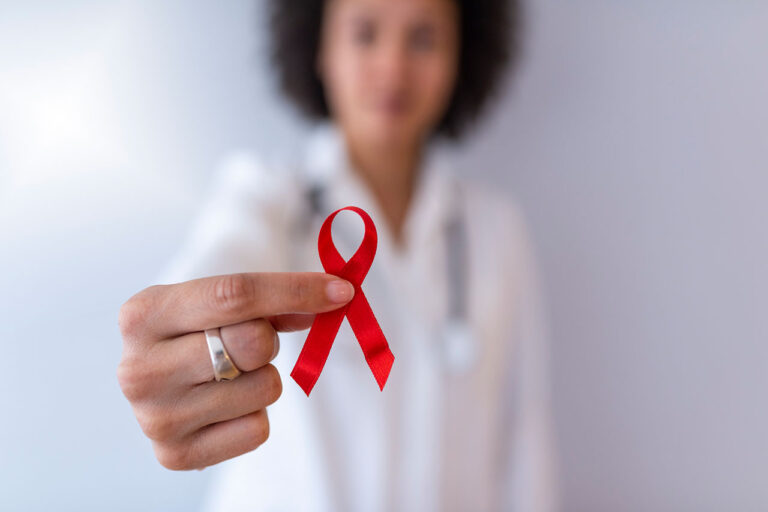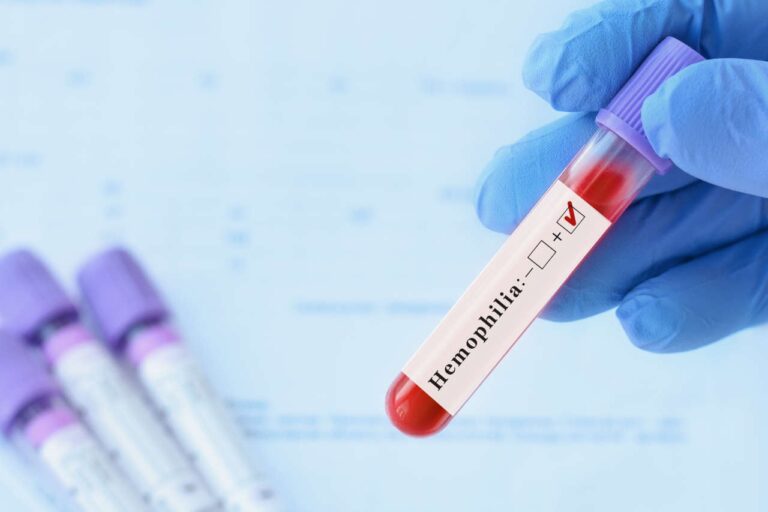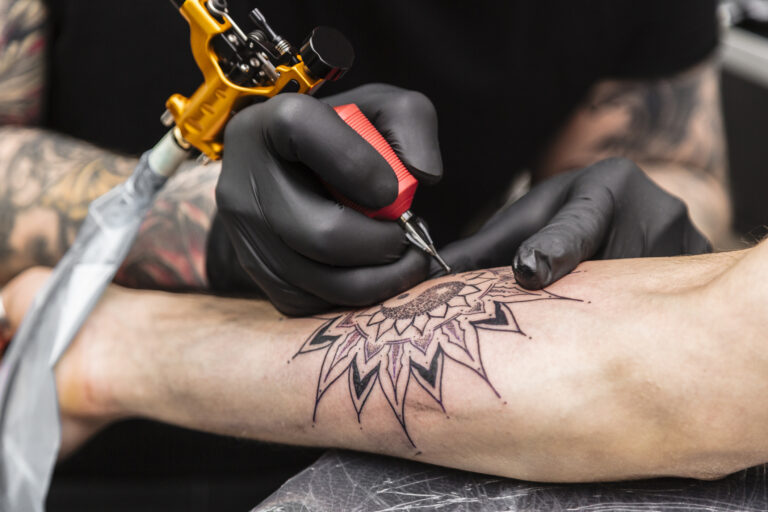
- Understanding hemophilia and recognizing bleeding risks are essential for effective management and reducing complications.
- Emotional support through therapy, support groups, and open communication with loved ones enhances mental well-being and resilience in those living with hemophilia.
- Physical safety measures and social strategies can help make life with hemophilia easier.
- Proactive planning for emergencies, diet, and lifestyle adjustments can improve the overall quality of life for individuals with hemophilia.
Hemophilia is an inherited (genetic) bleeding disorder in which blood clots cannot form due to a deficiency in clotting factors. Living with hemophilia can be challenging because it requires lifelong treatment and monitoring.
Patients have to be mindful of their lifestyle and daily activities in order to prevent bleeding. Hemophilia can also influence a patient’s mental health. In addition to medical care, patients should seek emotional support when needed.
In this article, we will guide you on how to improve your quality of life with hemophilia. We will discuss management strategies and health tips to help make life with hemophilia easier.
Get Financial Assistance
Copay AssistanceEmotional Tips
Living with hemophilia can be restrictive. Patients may not be able to attend or perform certain activities due to the increased risk of bleeding.
This inability can have negative effects on one’s psychological health and cause feelings of sadness, anxiety, or anger.
Here are some strategies to help patients manage their psychological and emotional health.
Consult a Licensed Therapist
A licensed therapist can provide a safe space to express your emotions as well as learn strategies to cope with stress and develop resilience.
Your therapist will listen to your concerns and offer tips for managing anxiety and frustration to alleviate the emotional stress of living with hemophilia.
With the help of a therapist, you’ll have a more positive outlook on life with hemophilia. Regular sessions will empower you to face challenges with confidence and maintain the emotional balance you need to manage your condition.
Meditate
Meditation is one of the most powerful tools to promote relaxation and foster emotional stability. It can help calm your mind and reduce feelings of sadness while dealing with the disease.
Below is a step-by-step guide on how you can practice meditation:
- Find a quiet, comfortable place.
- Sit or lie down in a relaxed position.
- Close your eyes and take slow, deep breaths.
- Focus on your breath, feeling the air enter and leave your body.
- If your mind wanders, gently bring your attention back to your breath.
- Practice for 5 – 10 minutes daily to experience the benefits of meditation while living with hemophilia.
Understand the Disease
One of the most fundamental steps you must take to improve your quality of life with hemophilia is to understand the disease. Understanding hemophilia can reduce feelings of uncertainty and help you make more informed decisions about your healthcare.
Key areas to understand include:
- Bleeding risks: Recognize how injuries can lead to internal bleeding and complications.
- Treatment options: Learn about the existing and emerging hemophilia medications.
- Triggers and prevention: Identify activities or situations that increase bleeding risks.
- Long-term management: Understand joint health, lifestyle adjustments, and ongoing monitoring needs.
Advocate for Others
Living with hemophilia is challenging. Other people are going through this experience who can benefit from your insights. Working on projects that promote advocacy and support for hemophilia can create a sense of purpose.
You can participate in awareness campaigns or volunteer with hemophilia organizations to help others navigate life with hemophilia. Your voice can inspire change, empower those living with this disease, and foster a supportive environment for all affected individuals.
Confide in Loved Ones
Sharing your feelings with trusted friends or family members can provide emotional relief and strengthen your support network. Opening up about your fears, frustrations, or successes while living with hemophilia can reduce feelings of isolation.
Loved ones can offer comfort, provide practical assistance, and lend a listening ear. Don’t be shy to open up. Honest communication can make this journey less lonely and more manageable.
Join Support Groups
Participating in hemophilia support groups connects you with others who understand what you’re experiencing. These groups offer a safe space to discuss challenges and learn coping strategies from peers.
Being part of a community reinforces that you are not alone. Collective encouragement can empower you and help you face daily life with hemophilia more positively.
We encourage patients living with hemophilia to try to find a solution that fits their needs and personality. If one method fails, you should always try another.
Get Copay Assistance Now
Physical Tips
To minimize hemophilia risks and effects, patients should always prioritize their health. It is important to actively take care of your body and physical health, as this can also benefit your mental health.
Here are some physical considerations to improve your quality of life with hemophilia.
Recognize Emergencies
It is best to be mindful of minor, mild, and severe injuries. Those living with hemophilia should be educated on when to contact their healthcare providers and how to recognize emergencies.
Signs of an emergency include:
- Excessive or uncontrollable bleeding that doesn’t stop after applying pressure for 10 minutes
- Severe pain or swelling around a joint or muscle
- Signs of internal bleeding, such as abdominal pain, vomiting blood, or blood in stool or urine
- Sudden weakness, numbness, or difficulty moving limbs
- Signs of shock, such as pale, clammy skin, rapid heartbeat, or dizziness
If you don’t receive immediate care for severe bleeding, it can cause organ damage and become fatal.
Wear Safety Gear
If you’re living with hemophilia, you should take extra measures to keep yourself safe during certain activities that require protective equipment.
For instance, if you’re cycling, wear a helmet, knee pads, and elbow pads. If you want to play basketball, don’t forget a mouthguard. Even gardening or DIY projects will require gloves, safety goggles, and sturdy footwear.
Avoid High-Risk Activities
Life with hemophilia means you should avoid activities that could cause internal bleeding and open wounds.
This includes contact sports, high-impact sports, and other injury-prone activities. Swimming, jogging, pilates, yoga, golf, tennis, and dance are alternative activities for patients to consider.
Always discuss your activity plans with your healthcare provider to ensure safety.
Make a Plan for Home Management of Bleeding
Even in the case of a minor injury, patients living with hemophilia should consult their healthcare provider to prevent any excessive bleeding and infections.
At home, applying direct pressure with a clean cloth or bandage can help stop the bleeding. Elevating the affected limb above the heart level can also reduce blood flow and swelling.
If bleeding persists or worsens, seek medical attention promptly. Keep emergency contact information accessible. Ensure you have the necessary supplies such as gauze, ice packs, and clotting factor medications ready.
Having a plan for managing bleeding can give you peace of mind and increase your quality of life with hemophilia.
Follow a Healthy Diet
If you’re living with hemophilia, you should be mindful of your diet. A balanced diet can optimize body functions and prevent vitamin deficiencies and excessive bleeding.
The best diet for hemophilia includes foods rich in vitamin K (to support blood clotting) and iron (to prevent anemia). You should also incorporate calcium and vitamin D into your meals to strengthen your joints and bones.
Hydration is also essential for your overall health. Be sure to steer clear of excessive alcohol and processed foods to avoid impairing blood clotting and make life with hemophilia more manageable.
Physical Activity
Exercising daily helps maintain strength, balance, and flexibility. Hemophilia can damage joints, so maintaining joint flexibility is especially important.
Suitable exercises for those living with hemophilia include:
- Walking or light jogging
- Gentle stretching or yoga
- Swimming or water aerobics
- Balance exercises like tai chi
- Resistance training with light weights or resistance bands
Social Tips

Patients and their family members can both face social challenges as well. At times, it might be difficult to participate in social events due to concerns about injuries and risks associated with hemophilia, especially in young children.
Here are some essential factors to consider when socializing.
Maintaining Confidence
It is crucial for children living with hemophilia to learn how to manage their symptoms and be able to have independence in social situations.
Children and adults with hemophilia should be educated on how to respond to various situations with confidence.
Find Fun Activities
It is important to find activities and sports that fit your lifestyle. You should develop safe group activities to avoid bleeding.
Swimming, dance, choir, theater, art, debate, music, and other options are available for children. For adults, golf, bowling, and yoga are activities to consider to make life with hemophilia more enjoyable.
Speak to a Specialist About Copay Assistance
Practical Tips
Here are some other practical considerations for those living with hemophilia.
Time Off From Work or School
Coordinating medical care with other obligations, such as school, social life, and hobbies, takes planning. Always try to balance life with patience.
Consider your needs and be flexible to enhance your quality of life with hemophilia. It is always beneficial to inform your workplace or your child’s school of your condition to prevent any accidents and have support during times of need.
Family Planning
Hemophilia can be passed down from parent to child. Consider the risks during family planning and pregnancy, and always discuss any concerns with your healthcare provider.
How We Can Help You Live a Better Life With Hemophilia
Living with hemophilia presents unique emotional, physical, and social challenges. However, with the right support and mindset, you can improve your quality of life with hemophilia and navigate challenges with confidence and hope.
If you’ve been diagnosed with hemophilia and need help, AmeriPharma® Specialty Pharmacy is here for you. Our URAC-accredited specialty pharmacy offers hard-to-find medications and at-home treatments to patients in 40+ U.S. states and territories.
Book a call with us today to talk to a specialist and start receiving at-home care with full-service coordination, copay assistance, and 24/7/365 support.
REFERENCES:
- Parviniannasab AM, Rakhshan M, Momennasab M, Soltanian M, Rambod M, Akbarzadeh M. Haemophiliac adolescents’ perspectives of resilience: A qualitative study based on the resilience in illness model. Clin Child Psychol Psychiatry. 2020 Apr;25(2):346-358. doi: 10.1177/1359104519890905. Epub 2019 Dec 8. PMID: 31814433.
- Torres-Ortuño A, Cuesta-Barriuso R, Nieto-Munuera J, Galindo-Piñana P, López-Pina JA. Coping strategies in young and adult haemophilia patients: A tool for the adaptation to the disease. Haemophilia. 2019 May;25(3):392-397. doi: 10.1111/hae.13743. Epub 2019 Apr 17. PMID: 30994251.
- Reinicke K, Søgaard IS, Mentzler S. Masculinity Challenges for Men With Severe Hemophilia. Am J Mens Health. 2019 Jul-Aug;13(4):1557988319872626. doi: 10.1177/1557988319872626. PMID: 31451017; PMCID: PMC6712760.













